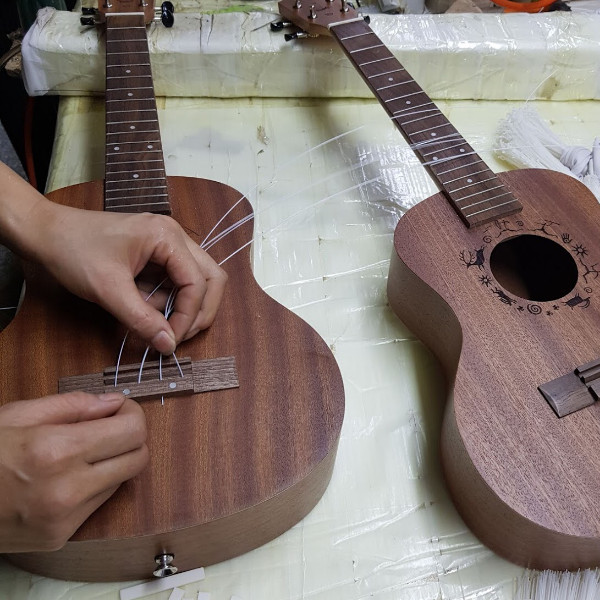Italian-born, Brighton-based singer-songwriter Julia Traser contemplates this notion on her debut album Perfect Timing, a…

Flight Uke Tip: Care and Feeding of Your Ukulele
Follow these simple tips and your ukulele will pay you back with many years of great service!
Storage: A gig bag or case is an ideal way to transport and store your ukulele.
Humidity: In general, under 40% relative humidity, humidify; over 60% relative humidity, dehumidify.
Strings: Clean your strings with a microfiber cloth, use some water on the cloth if necessary. Change your strings when they are worn.
Body: To clean the body of the ukulele, use a microfiber cloth. For smudges, dampen part of the microfiber cloth, and after cleaning the area, dry the instrument with a dry part of the cloth. There are guitar and ukulele cleaning products that you can use, but make sure they will work safely with the finish of your ukulele.
Fretboard: A wooden fretboard should be oiled if it looks dry. Most fretboards only require care a few times a year. It is a great time to oil the fretboard when you change your strings. Before oiling, clean the frets with some extra fine steel wool, dust off any steel wool residue, and then treat the fretboard with lemon fretboard oil (like Dunlop 65 or D’Addario) or Music Nomad F-One Oil. Spread the oil with a microfiber cloth, let the oil absorb into the wood for a few minutes, and then remove any excess oil with the microfiber cloth.
Bridge: If your bridge looks dry, follow the same procedure as oiling a fretboard.
Tuners: Make sure that any screws on the tuner heads are secure when you change your strings.
Disinfecting a Ukulele: You can *probably* apply 70% isopropyl alcohol to a microfiber cloth and to clean every surface, cranny, and string on a ukulele. The term “probably” is important, as some finishes may not react well to the alcohol…test an area before committing to disinfecting the whole ukulele. 70% isopropyl alcohol evaporates very quickly, and may leave surfaces dried out and in need of additional care.



